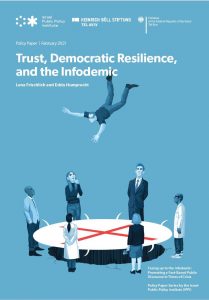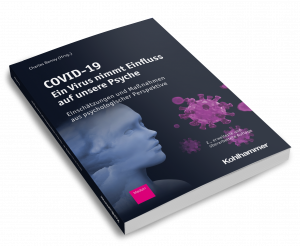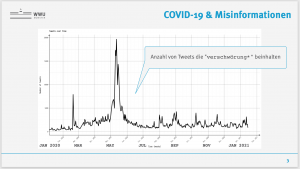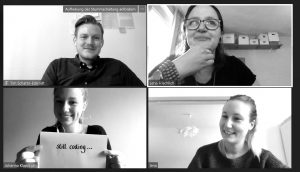New Publication by Lena Frischlich and Edda Humprecht
Lena Frischlich and Edda Humprecht from the University of Zurich worked together on a paper for the Israel Public Policy Institute (IPPI) which has now been published. The paper focuses on trust, disinformation and resilience before the so-called “infodemic” and during the last year.
More specifically, it introduces the idea of a “spiral of distrust”: Trust declines on multiple levels (democratic institutions, media, outgroups, individual conspiracy mentality) increase the vulnerability to mis- and disinformation and consuming mis-& disinformation can fuel distrust – a vicious circle. Predictors of declining trust as well as an overview about the state of trust before the global Covid-19 pandemic are provided and it is shown how the pandemic has affected the different components of the “spiral of distrust”. Finally, potential measures to foster democratic resilience are derived.
The Israel Public Policy Institute is an independent non-profit think and do tank based in Tel Aviv with representations in Berlin and New York. The paper series is published as part of the broader project “Fostering Democratic Resilience in the Digital Age”, conceptualized and executed by the IPPI in collaboration with the Heinrich Böll Foundation Tel Aviv.







